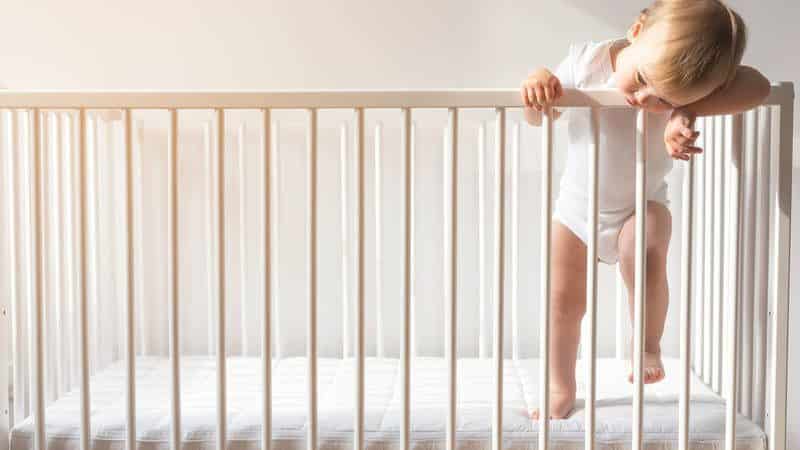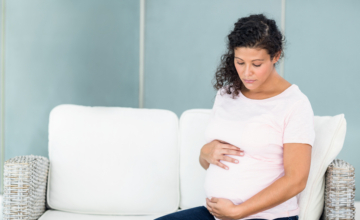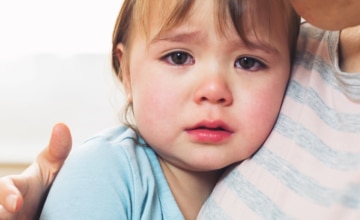Emerging Research and Resources Related to Expectant Parents and Families with Infants and Toddlers
In this resource
Explore highlights of research, articles, and other recent news items of interest to professionals who work with expectant parents and families with infants and toddlers. Be sure to join us on Facebook and Twitter to share your thoughts and stay up to date on the latest news and information from ZERO TO THREE. ~ Kathy Reschke, ZERO TO THREE Journal Editorial Assistant
Research
Mild Cases of COVID-19 Do Not Appear to Affect the Health of Pregnant Women and Their Fetus, Rutgers Study Finds
Patti Verbanas, Rutgers Today
October 7, 2020
Pregnant women with severe or critical COVID-19 and their unborn infants face increased health risks before and after delivery, the study found, while pregnant women with mild cases of the virus had similar outcomes as those who were uninfected. Researchers found that Black and Hispanic women, women who were obese, women over 35 years old and those with medical conditions such as diabetes and high blood pressure were at greatest risk of having severe or critical COVID-19. These women were at risk of delivering early, having preeclampsia, requiring supplemental oxygen or mechanical ventilation, and extended hospital stays. Neonatal risks, which were largely driven by premature births, included respiratory distress, bleeding in the brain, bowel inflammation, low Apgar scores, an abnormal fetal heart rate despite interventions to increase oxygen and blood flow to the placenta, and higher admissions to the neonatal intensive care unit.
Cited Source: Epidemiology of COVID-19 in Pregnancy: Risk Factors and Associations with Adverse Maternal and Neonatal Outcomes,[full text], J. S. Brandt, J. Hill, A. Reddy, M. Schuster, H. S. Patrick, T. Rosen, M. V. Sauer, C. Boyle, and C. V. Ananth
American Journal of Obstetrics and Gynecology
Child Care Programs Not Associated With COVID-19 Spread, Large Study Finds
Kerry Breen, Today
October 14, 2020
A large-scale study conducted by Yale University found that child care is not associated with the spread of the coronavirus. The study surveyed 57,000 child care providers across all 50 states, Washington, D.C., and Puerto Rico, and compared self-reported COVID-19 infections and hospitalizations among workers whose programs stayed open against those whose programs had closed. No difference in COVID-19 outcomes was observed between the two groups, leading researchers to conclude that child care providers did not face any “heightened risk” from their workplaces so long as core health and safety practices were followed, including disinfecting surfaces, hand washing, screening for symptoms, social distancing, masking, and limiting group sizes.
Cited Source: COVID-19 Transmission in US Child Care Programs,W. S. Gilliam, A. A. Malik, M. Shafiq, M. Klotz, C. Reyes, J. E. Humphries, T. Murray, J. S. Elharake, D. Wilkinson, and S. B. Omer
Pediatrics
Dads Who Spend Time With Their Babies Have Less Depression
Alison Escalante, Psychology Today
September 29, 2020
While postpartum depression has long been recognized in mothers, it was quietly happening to fathers, too. It’s estimated that 10–20% of mothers experience postpartum depression in the first year after giving birth, but fathers are not far behind them. Around 8–10% of fathers face their own battle with postpartum depression. That’s twice the rate of depression among men in the general population. A new study looked at the relationship between fathers’ involvement with their babies in the first year and the incidence of depression. “In our study, greater early involvement was related to less depression later on. This is very important because it suggests that if fathers are involved with their infants early and often, their mental health, and the health of the entire family unit, may fare better,” said study author Dr. Olajide N. Bamishigbin, Jr.
Cited Source: Father Involvement in Infant Parenting in an Ethnically Diverse Community Sample: Predicting Paternal Depressive Symptoms (full text),O. N. Bamishigbin Jr., D. K. Wilson, D. A. Abshire, C. Mejia-Lancheros, and C. D. Schetter
Frontiers in Psychiatry
Babies’ Random Choices Become Their Preferences
Jill Rosen, The Hub at Johns Hopkins University
October 2, 2020
People assume they choose things that they like, but research suggests that’s sometimes backward: We like things because we choose them, and we dislike things that we don’t choose. Though researchers have long known that adults build unconscious biases over a lifetime of making choices between things that are essentially the same, findings from Johns Hopkins University indicate that even babies engage in this phenomenon, suggesting that this way of justifying choice is intuitive and somehow fundamental to the human experience. “The act of making a choice changes how we feel about our options,” said co-author Alex Silver. “Even infants who are really just at the start of making choices for themselves have this bias.”
Cited Source: When Not Choosing Leads to Not Liking: Choice-Induced Preference in Infancy, A. M. Silver, A. E. Stahl, R. Loiotile, A. S. Smith-Flores, and L. Feigenson
Psychological Science
Playtime With Dad May Improve Children’s Self-Control
University of Cambridge News
June 30, 2020
Children whose fathers make time to play with them from a very young age may find it easier to control their behavior and emotions as they grow up, a review of 40 years of research suggests. The Cambridge review analyzed data from 78 studies, undertaken between 1977 and 2017, for patterns about how often fathers and their children play together, the nature of that play, and any possible links with children’s development. In almost all the studies surveyed, there was a consistent correlation between father-child play and children’s subsequent ability to control their feelings. Children who enjoyed high-quality playtime with their fathers were less likely to exhibit hyperactivity, or emotional and behavioral problems. They also appeared to be better at controlling their aggression, and less prone to lash out at other children during disagreements at school. The reason for this may be that the physical play fathers prefer is particularly well-suited for developing these skills.
Cited Source: Father-Child Play: A Systemic Review of Its Frequency, Characteristics and Potential Impact on Children’s Development,. Amodia-Bidakowska, C. Laverty, and P. G. Ramchandani
Developmental Review
Depression and Anxiety During and After Pregnancy May Harm Childhood Development, Study Finds
Kristen Rogers, CNN
September 15, 2020
Researchers have conducted reviews of studies on the relationship between a woman’s mental health during pregnancy and the first year after birth and her child’s development, but they hadn’t previously evaluated the long-term effects of depression and anxiety at different stages of motherhood on a range of developmental functions from infancy through adolescence. The authors of the current study analyzed the association of perinatal depression and anxiety with social-emotional, cognitive, language, motor, and adaptive behavior development in their offspring from infancy up to age 18. They also examined whether the timing of depression and anxiety, type of mental illness, and offspring age affected the findings.
Cited Source: A. Rogers, S. Obst, S. M. Teague, L. Rossen, E. A. Spry, J. A. Macdonald, M. Sunderland, C. A. Olsson, G. Yousset, and D. Hutchinson, O. N. Bamishigbin Jr., D. K. Wilson, D. A. Abshire, C. Mejia-Lancheros, and C. D. Schetter
Pediatrics
Resources
The Unrelenting Agony of Being a Depressed New Dad: Paternal Postpartum Depression Isn’t a Joke. It’s an Epidemic
Joe Keohane, Men’s Health
October 8, 2020
Paternal postpartum depression (or paternal PPD) is a delicate matter to discuss in 2020, a time in which historical injustices against women have been brought to the fore, and when mothers and fathers are struggling to figure out a more equitable way of parenting, often while working. But as a small but growing number of studies over the last decade and a half have shown, paternal postpartum depression is a real problem, and it is occurring in significant numbers.
Changing the Trajectories of Children in Foster Care: The Safe Babies Court Team™ Evaluation
Ann-Marie Faria and Jill Bowdon, American Institutes for Research
October 2020
This evaluation provides the first experimental evidence that the Safe Babies Court Team™ (SBCT) approach had a positive impact on maltreated infants and toddlers and their families. Cases assigned to judges trained in the SBCT approach exited foster care sooner than cases assigned to the control condition and cases that received the full SBCT approach were 5 times less likely to experience a recurrence of abuse or neglect. The goal of SBCT is to achieve timely permanent and safe homes for maltreated infants and toddlers, and this experimental evaluation suggests that achieving both outcomes requires investment in the full SBCT approach.
Picking Up the Pieces: Building a Better Child Care System Post COVID-19
Child Care Aware® of America
Fall 2020
In this year’s annual report, in addition to its customary State Fact Sheets and reporting on the cost and availability of child care nationally, in response to COVID-19, Child Care Aware® of America documents the devastating impact of the pandemic on the child care system.
Addressing Racial and Socioeconomic Disparities in the Harmful Impacts of COVID-19
Cara Karter, Gita Connolly, and Kamia Rathore, Chapin Hall at the University of Chicago
September 2020
As communities address and recover from the impacts of COVID-19, effective public policy and corresponding interventions to support children and families need to address economic and health disparities that are exacerbated by this crisis. This brief examined the effects of prior economic downturns and considered preliminary data on COVID-19 to inform a discussion of impacts and recommendations for policy and practice across Chapin Hall’s three main impact areas: child welfare, youth and family homelessness, and community capacity.
2020 National Prenatal-to-3 Research to Policy Summit
September 2020
The Summit was presented by the Prenatal-to-3 Policy Impact Center at The University of Texas at Austin LBJ School of Public Affairs. The theme of the inaugural event was “Building a State Policy Roadmap to Strengthen the Earliest Years.” Recording of the full event includes keynote addresses from Dr. Iheoma Iruka, Dr. Joia Creer-Perry, and Dr. Jack P. Shonkoff as well as a follow-up discussion.




